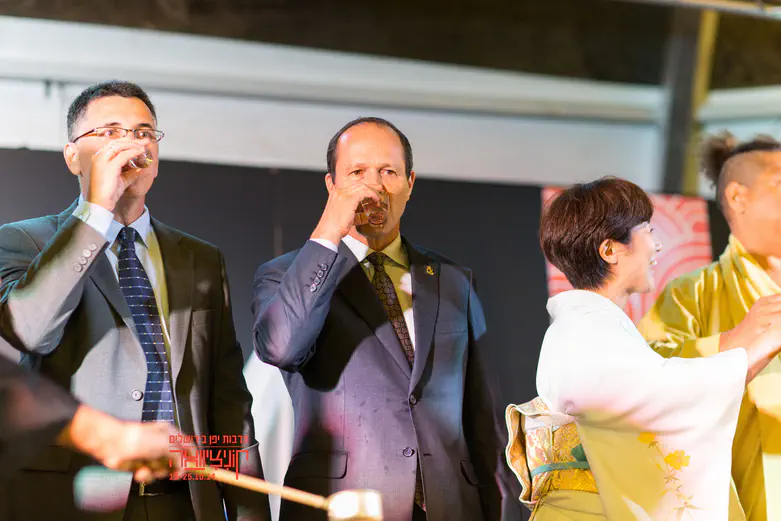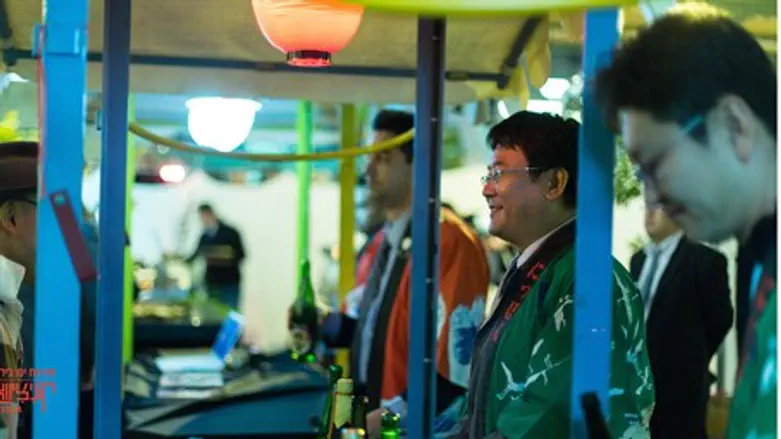
This article is the second in a unique series in honor of Japanese Culture Week. For the first in the series, click here.
As America and Europe become ever more critical in foisting political agendas on their relations with Israel, the Jewish state is turning its eyes to the east – where it has found a natural ally in Japan, holder of the world’s third-largest GDP.
That alliance is advancing rapidly under the guidance of the Japan External Trade Organization (JETRO), a government-related group whose representatives at the Japanese Culture Week in Jerusalem told Arutz Sheva on Monday night they are witnessing something of a renaissance in Japanese-Israeli trade.
Kei Takagi, manager of JETRO’s branch in Tel Aviv, explained how his organization aids Japanese export to Israel, and likewise aids Israeli companies who want to enter the Japanese market.
“There’s a lot of talk of business,” Takagi tells me. “We are seeing a very large rise among Japanese businesspeople that have started arriving here (in Israel) in the last year.”
The food industry is a natural and easy first step in trade as the two countries grow closer. Kosher certification to ensure food products meet Jewish dietary laws are “a relatively new thing in Japan, although more and more food manufacturers are getting interested,” relates Takagi.
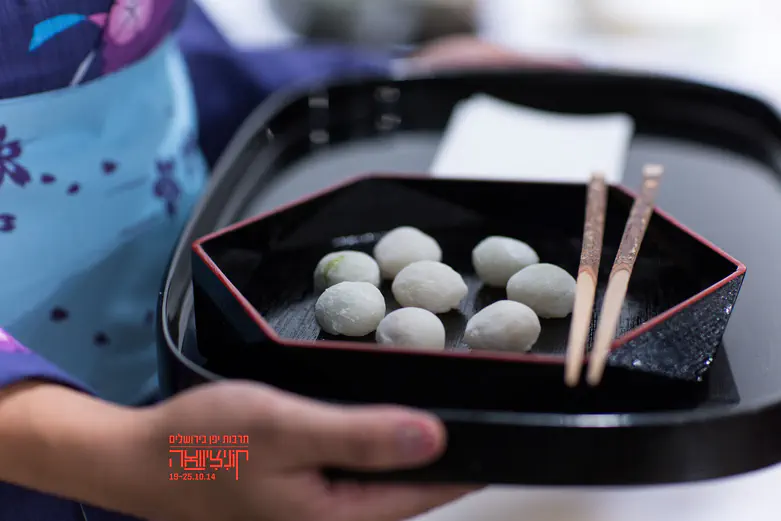
“On the one hand there aren’t many Jews in Japan; on the other hand the demand for kosher certification is not only in Israel, it’s also in the United States, in the West and Europe,” adds the JETRO manager, explaining how his organization has recently led a campaign to explain to Japanese companies the benefits of “going kosher.”
Their efforts have been rewarded, with a major Japanese sake label recently taking the plunge into the kosher – and the Israeli – market.
Re-Born in Israel
They say the way to a man’s heart is through his stomach. If that idiom is true, Born sake brewery and the Japanese and Israeli companies it has partnered with seem to have the recipe to sealing an alliance between Israel and Japan with their kosher traditional Japanese culinary delights.
As part of Arutz Sheva’s special coverage of Japanese Culture Week, I got the chance to taste a cup of the fine kosher rice wine on Monday night as I spoke with Atsuhide Kato, 11th generation president and CEO of Katoukichibee Shouten.
The sake brewery was founded in 1860, eight years before the Meiji period began, and its Born brand has won a staggering number of gold medals at sake and wine competitions both in Japan and worldwide.
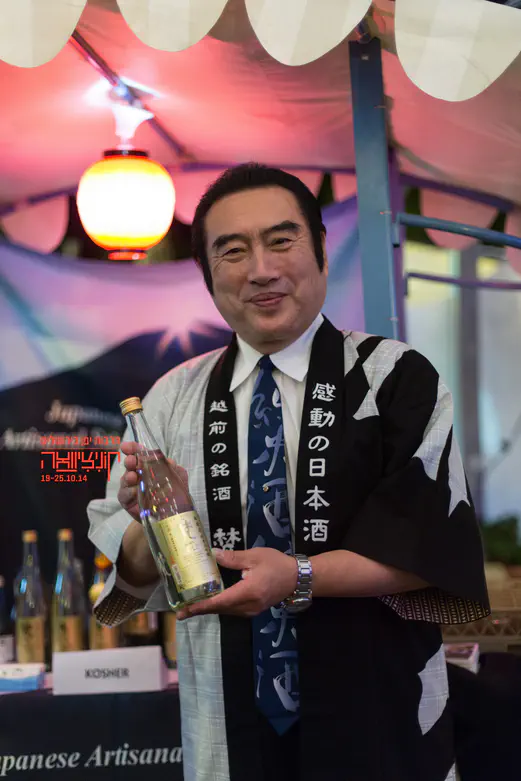
Kato, dressed in a traditional jacket bearing the Born logo, tells me in Japanese that this is already his third time in Israel. However, he first came only last year, in a further glimpse into the rapid growth of Japanese interest in the Israeli market.
When asked his impressions of the Jewish state, Kato remarks on his pleasant surprise at the kindness of the Israeli people, and his positive impression of Jerusalem, the “city of peace.”
Thanks to his recent business contract with Israeli importing company Yama and Kedma, Kato plans to continue expanding his presence on the Israeli market, and to keep providing Israelis with top-quality traditional beverages.
“Food is culture”
Yama and Kedma helped bring Born to Israel together with its partner Yama Mizrah, a Japanese kosher food company that has already been exporting its delicacies to the American market, and now has begun concentrating on Israel.
Akihiro Monden heads the unique Japanese kosher company.
For me, unexpectedly meeting Monden at the event is a sort of reunion, as I last saw him in Japan during the winter of 2012, when I was accompanying a delegation of rabbis led by then-Chief Rabbi of Modi’in Rabbi David Lau as a translator.
Monden, who is no stranger to Israel, remains in close contact with Rabbi Lau – who right after the trip to Japan became Chief Ashkenazic Rabbi of Israel.
Back in Japan, a local office branch of New York’s OU and England’s KLBD kosher certification have been opened, Monden tells me. He adds that in addition to helping certify and export sake, he has also begun selling kosher Japanese tea and shiitake mushrooms in Israel.
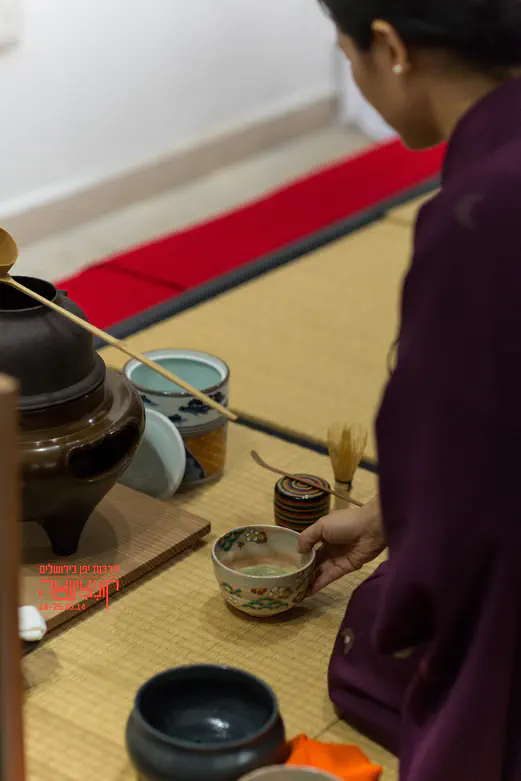
Speaking about the event and its role in strengthening Israeli-Japanese ties, Monden remarks “this is what it is to get to know each other…after all, food is culture.”
Bringing the best to Israel
That sentiment was shared by Oren Shabo, Monden’s Israeli business partner and head of Yama and Kedma.
“Our principle is to create familiarity between the cultures,” emphasizes Shabo, explaining the philosophy behind his work. “Yama and Kedma only deals with premium food products after having them go through the process of kosher certification.”
Describing to me his latest partner Born, Shabo asserts that it is “the best sake in Japan today, and with the kashrut of KLBD, we are bringing it to Israel to make contacts between the cultures.”
At the moment Shabo is focusing his Japanese efforts on importing three types of sake and Japanese vodka – there are other types of products too, but he tells me “we will talk about them when they come.”
